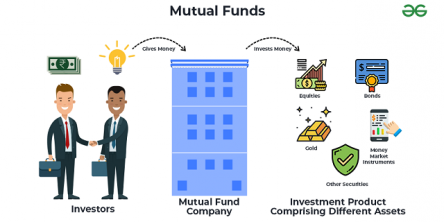8 Compelling Reasons Why the Finance Industry is Moving to the Cloud

In the wake of the global pandemic, the BFSI sector has realized the benefits of adopting a cloud migration strategy to better serve customers and stay ahead of the competition. Migrating to the cloud is a good way to make the most of its speed, on-demand scalability, and flexibility for boosting productivity, cutting costs, and enhancing business resilience.
The computing resources and advanced capabilities that were once out of reach are driving the growth of the financial sector today. This post will discuss the key factors that make cloud migration a smart move for the finance industry.
Benefits of Cloud Migration for the Financial Services Sector
1. Eliminates Computing Costs
The biggest financial benefit of moving to the cloud for banks and non-banking financial companies (NBFCs) is zero capital cost! There is no need to purchase expensive laptops or computers that offer an ample amount of RAM & storage. You can store all the data, apps, and SaaS programs securely on the cloud and pay only for what you use! Plus, all the updates are automated so you can rest assured that you have the latest version.
2. No Support & Maintenance Cost
When you choose a top-rated and reliable cloud service provider, you can be confident of receiving quality service and a professional approach to work. Moving to the cloud brings your business the benefits of modern equipment. It prompts the implementation of projects, reliability, data security, and a comprehensive infrastructure with no maintenance cost. This means big savings and zero stress of dealing with servers and security updates.
3. Energy Savings
Cloud consumes less power which means reduced energy expenses and lower carbon footprint! Cloud computing involves the use of internal servers which boosts your business efficiency. It enables your employees to work from anywhere with easy access to files and spreadsheets anytime. The flexibility to work from home is a crucial capability in the remote world of a global pandemic. This flexibility also allows financial companies and banks to respond to changing customer needs and launch new financial products much faster.
4. Reduced IT Burden
Migrating to the cloud can significantly bring down your IT costs and the expenses of managing data centers. Hiring an in-house team means you have to pay for their salaries, benefits, and other employment costs which can far outweigh the expenses incurred on managing software and hardware.
5. Scalability
Gone are the times when transitioning to emerging technologies came with a hefty price tag. With most cloud service providers, financial companies prefer to use an operation-based pricing model. The pay-as-you-go ease of cloud enables enterprises to scale their computing capacity and costs, up or down as and when needed. This on-demand scalability also enables the BFSI sector to be more responsive to the changes in the market and evolve in time.
6. Reduced Risk of Data Security
Data is the most expensive resource in the financial industry and the cloud keeps it guarded against security breaches. Unlike legacy systems that leave financial data vulnerable to encroachments, the cloud protects your apps, infrastructure, and confidential client data with robust in-built security features.
7. A Competitive Advantage
A cloud migration strategy facilitates business innovation. It enables financial companies and banks to deliver quality customer experiences and speed up operations. Advanced analytics and BI solutions provide actionable insights into customer behavior and provide the right information in real-time to customize offers, personalize products, and enhance customer engagement.
8. Enhanced Disaster Recovery
Two hours is the typical disaster recovery deadline for a company that’s using cloud storage. A company that has all its data and computing resources on-premise typically takes up to 8 hours to solve this problem. This downtime can take a considerable toll on productivity, profits, and business reputation. Cloud service providers leverage advanced disaster recovery tools which ensures that your core financial systems are back in an optimal working condition much faster.
Benefits of Cloud Migration Strategy for FinTech Industry
• Enables developers to build custom apps that cater to client needs and expectations, independently and at their pace.
• Offers the flexibility to develop innovative mobile applications using new platforms and frameworks instead of rebuilding apps using a legacy tech stack.
• Brings the ability to automate the entire process of implementing, managing, scaling, and maintaining apps and leveraging the benefits of resource efficiency, speed, and platform independence.
• Allows new entrants to efficiently tackle the inconsistencies in environment configurations. This makes it easy to overcome quality drops even as the app continues to scale in response to increased business velocity.
• Facilitates easy implementation of an API ecosystem to deliver hyper-connected customer service while ensuring strict adherence to emerging regulations.
• Accelerates the deployment of customer-facing portals and apps for future growth.
Concluding Thoughts
To be able to solve business challenges, achieve month-on-month targets, and satisfy customers, the financial services sector must adopt an all-embracing approach in cloud adoption. By making cloud the focal point of business transformation; banks and FinTech businesses can avoid business disruption, boost employee productivity, reduce operational risk and position themselves as progressive, reliable, and competitive.
Similar Articles
Outsourcing debt collection boosts recovery rates, ensures compliance, and preserves client relationships—freeing your team to focus on core business tasks.
Save money on home & business essentials with bulk wholesale! Discover tips, product categories, and deals to maximize your savings.
Loud budgeting has taken over social media, with people openly discussing spending habits, saving strategies, and financial struggles. While this trend encourages transparency, it also adds pressure to meet certain expectations
Securing your financial future has become a necessity in today's world, and investing in mutual funds is one of the most popular ways to grow your wealth over time. Managing your money and investing in potential funds has become convenient and seamless with the help of the right online platforms
Gone are the days when you had to carry a wallet full of money when traveling somewhere. Now, cashless travel has become a reality due to technological developments, making it easier for travelers to manage their cash when they’re out and about.
Discover how ACH and eChecks revolutionize payments—offering cost-efficiency, security, and convenience while addressing cybersecurity challenges and future trends.
NPS (National Pension Scheme) is a popular option for those looking to save for retirement and get a steady income through an annuity after retirement. It is supported by the Indian Government and is based on contributions made regularly. The final pension will depend on the money that you build by the time of retirement and the portion used to purchase an annuity.
Debt collection can be stressful for both the debtor and the creditor. Howеvеr, undеrstanding thе tactics commonly usеd by dеbt collectors can help you protеct yoursеlf from potential lawsuits. Whether you’re a business owner collecting unpaid invoices or an individual dealing with personal debt, being informed about the legal and ethical boundaries of debt collection is crucial.
In the fast-paced world of international trade, how can businesses ensure smooth and efficient movement of goods across borders? The answer lies in expert facilitation services that specialize in navigating complex regulations and optimizing supply chain processes.









